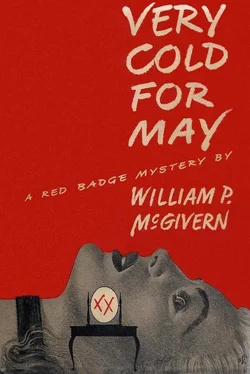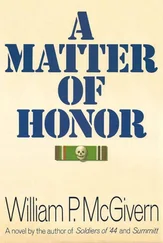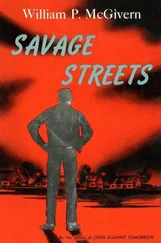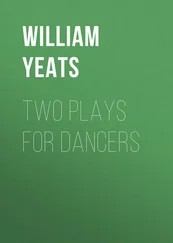He opened the diary to page one.
May’s account of her wartime relationships with gangsters, industrialists, artists, movie stars, generals and prostitutes was a fascinating chronicle, Jake realized after reading only a few pages. She recounted verbatim conversations and her memory for names, dates and places had been amazing. There was the saga of a three-star general whose name had become a household symbol for idealism and unflinching honesty during the war, but who, according to May’s record of his comments while drinking, was actually little more than an office boy for one of the nation’s major industries. And her account of the relationship between a politician of national stature and a foreign ambassador could have footnoted a chapter in Kraft-Ebbing. The diary teemed with names, big and little, with intricate transactions designed to pad someone’s pocket at the expense of someone else, and with the details of assignations, infidelities, promiscuities, and sexual acrobatics of all varieties.
Jake shook his head. “No wonder Riordan was worried.”
“He must still be worried,” Sheila said.
Jake looked at her thoughtfully. “Yes, of course. The dossier on him is still in limbo.”
“Maybe not,” Sheila said, thoughtfully.
“That’s right,” Jake lit a cigarette, and the sound of the flaring match seemed unnaturally loud in the still office. Sheila was right. Riordan might not be worried any more, for the good reason that he could have killed Meed and gotten the incriminating information from the diary.
“But that doesn’t explain why he sent the diary to me,” he said finally. “Let’s stop playing detective and give this thing to Martin.”
“You can take care of that errand yourself.”
“I wish you’d stop being so damn impersonal,” Jake said irritably. “I’m depressed and I’d like to talk with you. Why don’t you have dinner with me tonight?”
Sheila shook her head. “Sorry, Jake. Something is bothering you, but you’ll have to figure it out for yourself.”
“I don’t expect you to take me on your lap and calm my fevered crying,” Jake said. “I merely want you to have dinner with me and laugh at my gay commentaries on the weather.”
“Not tonight,” Sheila said. “But thanks.”
“Oh, not at all,” Jake said drily. He opened the door for her and watched her walk away with quick light steps...
Jake took a cab to Central Station and found Martin sitting in his warm, smoke-filled office, with his feet on his desk, staring out at the swirling snow that was falling over the city.
He put the diary at Martin’s elbow and lighted a cigarette while Martin swung himself around in the chair and opened the book. For several moments he skimmed through the pages without comment or expression; and then he glanced up at Jake, and said quietly, “Where’d you get this?”
Jake told him how he had received the diary, and added that he had noticed a number of pages had been cut out, and that there was no mention of Riordan in the diary.
Martin didn’t answer for a moment. He stared at the book and turned a few pages idly, a thoughtful frown on his face. Finally he said, “I want you to do me a favor, Jake. Don’t tell anybody about bringing me this, will you?”
“You’re the boss.”
“I want to surprise some people,” Martin said. “I don’t want anyone to know how it came into my hands. Okay?”
Jake said okay and then spent a half hour talking with Martin, mainly because there was no place in particular that he wanted to go, and nothing in particular he wanted to do. They didn’t talk about the two murders that were on their minds. They talked about local politics, about the days when Jake covered a police beat and Martin was in uniform.
When Jake left he was feeling vaguely nostalgic, but he suspected the feeling was cheap, phony and empty. He decided he might just as well be drunk as sentimental, so he told the cab driver who came along to take him to a bar.
May was buried the next morning after a pallid, undenominational service in a North Side chapel. There were banks of magnificent floral offerings about the closed coffin, their heavy fragrance blending nicely with the lugubriously solemn organ music and the pale sincerity of the young man who preached the sermon. The young man wore a gray suit with a black vest and he spoke of May as if she were a faithful dog that had been killed by a careless hunter.
Jake walked out after the service and lit a cigarette. He was feeling bad from the effects of his drinking the night before, and the grotesque nature of the funeral service made him feel worse. May had deserved better than that, he thought ruefully.
Someone dropped a hand on his shoulder and when he turned he saw Mike Francesca standing behind him with a sad smile on his face.
“It was too bad, eh, Jake?” Mike said, with a shake of his head.
“Yes, it was too bad,” Jake said.
They moved to the curb to avoid the crowd that was coming out of the chapel.
“May was a good friend of mine for many years,” Mike said. “We were very close.” He shook his head sadly. “Such good friends we were. The police are having no luck finding her murderer, eh?”
Jake smiled. Mike had several police captains on his payroll and if he wanted to know how a police investigation was going he had only to pick up a phone. “They are temporarily baffled,” he said, drily.
“Too bad,” Mike said, with a heavy sigh. He peered at Jake with his eyes half-closed and smiled gently. “The diary, I understand, has been found. Did you look through it, Jake?”
“Yes, I looked through it, Mike,” Jake said evenly. “I didn’t see anything about you that was unflattering.”
Mike shook his graying head in a gesture of annoyance. “I knew there wouldn’t be,” he said. “I mean, I wasn’t sure, but my first idea was, ‘Why, May won’t hurt you, Mike. Don’t be a fool.’ But I couldn’t just relax, you know, so I worried about it.”
“I don’t think you have to worry any more,” Jake said, but as he spoke he realized that he had been working on the assumption that the material cut from the diary must have referred to Dan Riordan. Actually, it could have referred to anyone. He wondered if Martin realized that.
Mike touched his arm. “Can I drop you somewhere, Jake?”
Jake said he was going downtown and Mike stepped to the curb and glanced down the street. He didn’t wave or change expression; he merely indicated by the gesture that he was through talking and a long, black Cadillac halfway down the block pulled away from the curb and shot down the street to come to a smooth stop before them.
“Ah, here we are,” he said with a surprised smile. “Get in, Jake. How’re you doing with Dan Riordan?”
“Fair enough,” Jake said.
“You know, Jake, some time I must have a talk with you about public relations. Could you get the papers to stop calling me a hoodlum?”
“Why in hell do you care what they call you?”
“I tell you, I don’t care, myself, Jake, but I got two granddaughters in a convent out West, and I don’t think it is nice for them to have me called a hoodlum. Maybe you would call me this week, and we could have a long lunch and talk this over. Eh?”
The car slid to a stop before the Executives’ Building as Mike finished talking, so Jake nodded, and said, “Sure thing.”
Mike slipped a card into his hand. “My private number,” he said. “You give me a ring, eh?”
“Sure,” Jake said.
Mike chuckled good-humoredly and climbed back into his car. The driver let out the clutch and the Cadillac rolled deliberately and insolently through a red light, and then turned left past a sign that said NO LEFT TURN and disappeared down the side street. Jake shrugged and walked into the Executives’ Building, wondering why he didn’t throw Mike’s card away.
Читать дальше












